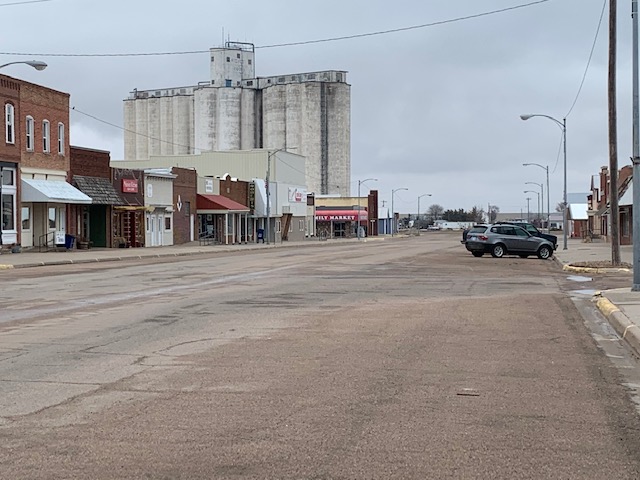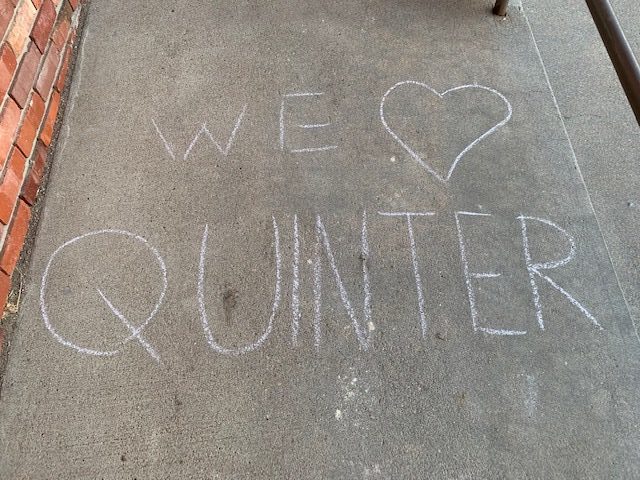Kansas Aging Farmland Fighting Through Covid-19 Crisis
 I am on the Emergency Operations Center team in Gove County, Kansas. On March 26, we received horrible news that our very small county is the first in very rural Kansas to report a positive Covid-19 case. Our governor announced Saturday that as of 12:01 this morning, our state is under a “stay at home” order. We are working and praying — and still grappling with what this means for us.
I am on the Emergency Operations Center team in Gove County, Kansas. On March 26, we received horrible news that our very small county is the first in very rural Kansas to report a positive Covid-19 case. Our governor announced Saturday that as of 12:01 this morning, our state is under a “stay at home” order. We are working and praying — and still grappling with what this means for us.
We had been counting on this “three-county boundary” in every direction like some kind of insulating shield protecting us. We were checking online at the integrity of that invisible fence by the hour. All the while, it’s been in the back of our minds that a major U.S. interstate cuts through the heart of our county and travelers between Denver and Kansas City are through here daily.
The elephant in the room is the growing concern for our most valuable resources: our people and our businesses. When our main streets are dotted with mom-and-pop stores, or home-based business entrepreneurs, we worry about how long we can all hold on in these times we’ve never seen before. And just when we think it can’t get any worse, it does. Last week our schools closed, and our county and hospital have gone to essential staff only. These are our three biggest employers.
Fueling Gove County’s Economic Cycle
Many may think that “Mayberry” isn’t seeing much change due to current precautions, but we are — and it’s scary as hell. The business of agriculture has seen better times. You take an already struggling ag economy, and throw something like Covid-19 into the mix, and it potentially has frightening outcomes. Our local businesses, already facing “slow time” (winter), are now also navigating through the necessary mandated changes of “social isolation.”
The residents of Gove County typically enjoy getting out and about, talking with friends. The ripple effects of decreased business on our main street is already palpable, and if this lasts much longer, could devastate many. As a part owner of a business in the hospitality industry, and in the last 10 days, we’ve reduced staffing by 80% and revenues are down 90%. We won’t make it long, and I know we aren’t alone. We are all scrambling for new state resources designed to help rural Kansans, but we are finding that we are too rural for much of this assistance. The State of Kansas came out with an emergency loan for the hospitality industry (restaurants, hotels, etc.), and the applications sent in from our very rural county were all denied. It leaves us to wonder if we are all just “too rural” for this kind of emergency state aid. Are we assumed “collateral damage” in the grand scheme of things? Maybe not, but it sure feels like it sometimes.

We must continue to do all we can to stimulate our businesses. Nearly all of them are making grand gestures to bring what we need out to the street. Our local fire departments are going to the grocery store or pharmacy for folks who must remain home bound. Our local businesses need these revenues now more than ever. This is far more than just picking up groceries in town, it’s about those dollars that pay the employees that work at the store where you shop. Those dollars pay the employees so they can keep working and buying their own groceries. It’s a cycle and we must be its fuel.
I must add that if I didn’t know and fiercely believe in our own “bootstrap” mentality, I’d desperately fear the simplicity and efficiency some are discovering through social isolation, whether ordering online, doing curbside pick-up, bagging and delivering groceries, leaving items on doorsteps in exchange for an envelope of money, or watching church on a livestream. Could these accommodations due to Covid become our new norm? Are we teaching our rural society to live without the extras required to keep our downtown bustling and foot traffic in our stores? Are we facilitating a paradigm shift to a new way of conducting ourselves socially and financially in rural America? Not on our watch, no way.
Appreciating Our Coffee Crew
We will come out on the other side of Covid-19’s economic bottleneck, recognizing, appreciating, and celebrating our rural ways — we must. While humbly honoring the importance of isolation, we will look back on how we’ve lived under these mandated changes, kick a little dirt on it, and forge ahead with conscious intent on replacing what we’ve missed out on. Our “coffee crew” (temporarily disbanded) will have missed solving life’s problems at the local meeting place where they congregate over 40-cent coffee and fresh maple donuts all morning. They need to talk about the grain markets, the muddy roads, the upcoming planting season, and of course the elections.
My bet is we will all grow deeply appreciative of what we have because of what we had lost due to Covid-19. Kids need school, grownups need work, we are hungry for the hello in the grocery store aisle, and we know that sitting in our doctor’s office can never be replaced by a computer monitor or cellphone. There is a place for telemedicine in our future, but a screen can’t touch your ankle and feel how it moves incorrectly after a fall. Or how a skilled physician can palpate tender abdomen and eliminate many organ systems by a simple physical exam. This is crazy to say, but honest to goodness, we long for a handshake, a hug, a fist bump, a high-five — that things we can’t do right now.
I’d argue that we are the strongest, most stubborn, prideful bunch you’ve come across, and we won’t go down without a fight. The fight within us will fuel our fire and our bounce back will catch us up. If our little economies can weather the period of mandated changes (and I absolutely think we can), residents will lift and carry us on their shoulders like they always have — just ask the “coffee crew.”

 Ericka Nicholson was born and raised in rural Kansas. Nicholson serves as Gove County’s Economic Development Director and as the President of the local Volunteer Ambulance Service.
Ericka Nicholson was born and raised in rural Kansas. Nicholson serves as Gove County’s Economic Development Director and as the President of the local Volunteer Ambulance Service.